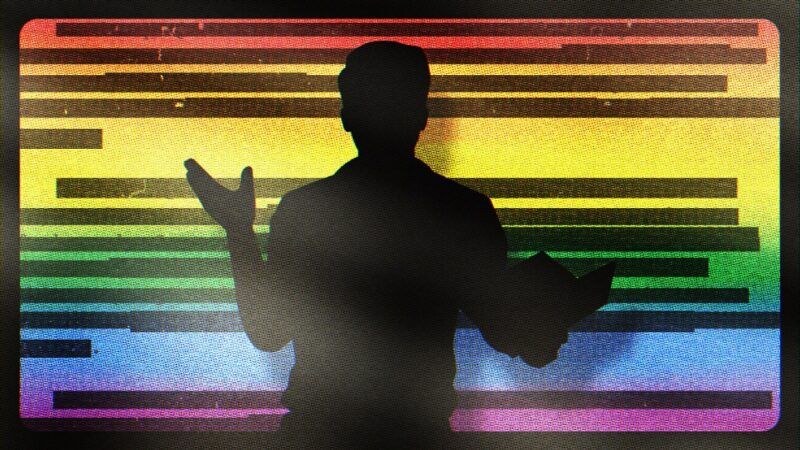Florida Bans Most Public School Instruction on Sexual Orientation and Gender Identity
What happened to the claim that this was just about protecting young children?

The Florida Board of Education voted today to approve proposed regulations that will prohibit teachers from providing instruction on sexual orientation and gender identity in most classes in any grade of its public schools, expanding censorship of LGBT issues far beyond the stated goals of conservative politicians that they wanted only to protect very young children from overly sexualized discussions.
When Republican Florida lawmakers introduced and passed H.B. 1557, opponents quickly started calling it a "Don't Say Gay" law. Florida Gov. Ron DeSantis shot back that the law was only for kindergarten through third grade, even sparring with a reporter at a press conference about the text of the law. He subsequently used a clip of that response in a self-promoting video.
DeSantis' response now looks like misleading nonsense. The law not only banned discussion of sexual orientation and gender through third grade, but it also contained an additional prohibition on any such instruction in a grade where it "is not age-appropriate or developmentally appropriate for students." The law did not define these terms, leaving it to the state's Board of Education. That board has decided that almost all discussion of these issues is inappropriate in public schools.
The Miami Herald reports that the board voted today to approve a proposed rule that states that teachers "shall not intentionally provide classroom instruction to students in grades 4 through 12 on sexual orientation or gender identity unless such instruction is either expressly required by state academic standards … or is part of a reproductive health course or health lesson for which a student's parent has the option to have his or her student not attend."
If "Don't Say Gay" wasn't accurate when it was passed last year the state has worked to make it accurate after the fact. Reason noted in March when this rule was proposed that the state's social studies benchmarks call for teaching about homosexuality only in connection with the Holocaust and in psychology classes. That omits a lot of potential instruction. In addition, the state has forwarded a proposal to the Board of Education requesting the removal of four education benchmarks connected to H.B. 1557. The state's Department of Education never responded to Reason's phone or email request asking which benchmarks regulators planned to remove.
The Miami Herald notes that an LGBT activist who attended hearings on this rule asked if teachers could teach 11th-graders about the Supreme Court decision that mandated legal recognition of same-sex marriages. Education Commissioner Manny Diaz responded that teachers would be able to talk about the case itself but would not be able to discuss "something else that is subjective and trying to expand on that."
There's a problem with Diaz's response. The contents of a Supreme Court decision are themselves not "subjective." There's a reason the decisions themselves are referred to as "opinions." Does discussing the text of the decision itself go beyond the rules? Does encouraging students to debate a Supreme Court decision violate the rules? Debate is an essential part of any self-respecting liberal arts education. But teachers can be punished and lose their license to teach if they make the wrong decision here, so an intelligent teacher will probably avoid these topics as much as possible. And that's the point.
The usual libertarian response to this kind of centralized meddling in public education would be to encourage dissenting parents to seek out charter schools that are friendly to their interests. However, Florida's conservative lawmakers are now trying to amend H.B. 1557 to apply to charter schools.
As for the old insistence that this was only about protecting kids up through third grade from overly sexualized content, DeSantis press secretary Bryan Griffin gave up the game when asked about the new proposed rule: "There is no reason for instruction on sexual orientation or gender identity to be part of K-12 education. Full stop."


Show Comments (238)